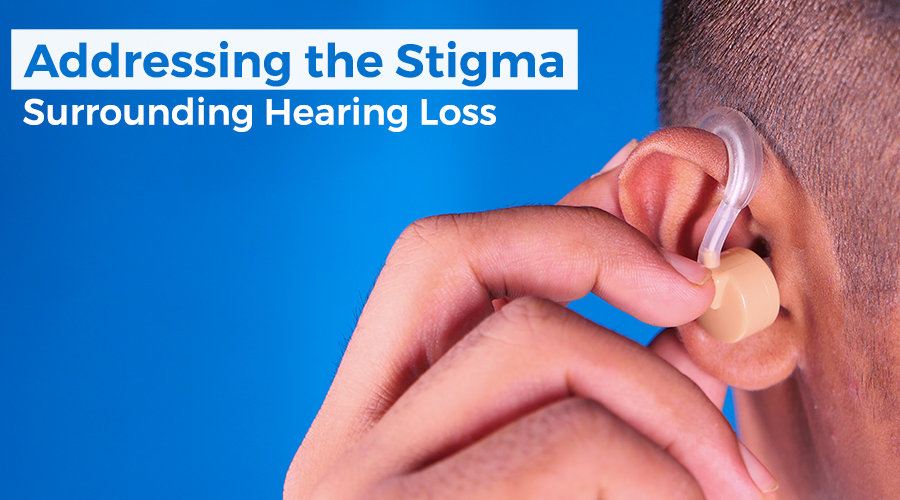Addressing the Stigma Surrounding Hearing Loss

Hearing loss affects millions of people worldwide, yet it remains one of the most stigmatized health conditions. The societal stigma surrounding hearing loss can have profound effects on individuals, leading to feelings of shame, isolation, and reluctance to seek help. In this blog post, we’ll delve into the pervasive stigma surrounding hearing loss and discuss ways to address and overcome it.
-
Understanding the Stigma: The stigma surrounding hearing loss is rooted in misconceptions and stereotypes. Some common misconceptions include:
- Hearing loss is a sign of old age or cognitive decline.
- People with hearing loss are less intelligent or capable.
- Hearing aids are bulky, unattractive, and embarrassing to wear.
- Hearing loss is a personal failure or weakness.
These misconceptions contribute to the stigma surrounding hearing loss, leading to discrimination, social exclusion, and barriers to seeking treatment.
Effects of Stigma on Individuals: The stigma surrounding hearing loss can have far-reaching effects on individuals’ mental health, well-being, and quality of life:
- Psychological Impact: Stigma can lead to feelings of shame, embarrassment, and low self-esteem, affecting mental health and overall well-being.
- Social Isolation: Fear of judgment or ridicule may cause individuals to withdraw from social interactions, leading to feelings of loneliness and isolation.
- Delayed Treatment: Stigma may deter individuals from seeking help for their hearing loss, leading to delayed diagnosis and treatment, which can exacerbate the condition over time.
- Workplace Discrimination: Individuals with hearing loss may face discrimination in the workplace, including lack of accommodations or opportunities for advancement.
Addressing the Stigma: Addressing the stigma surrounding hearing loss requires a multi-faceted approach involving education, awareness, and advocacy:
- Education: Promote accurate information about hearing loss, including its causes, prevalence, and available treatments. Educate the public about the importance of early intervention and the benefits of hearing aids.
- Awareness Campaigns: Launch awareness campaigns to challenge stereotypes and dispel myths surrounding hearing loss. Share stories of individuals thriving with hearing loss to inspire and empower others.
- Normalizing Hearing Aids: Highlight the advancements in hearing aid technology and the variety of sleek, discreet options available. Normalize the use of hearing aids as a tool for enhancing communication and quality of life.
- Support Groups: Create support groups or online communities where individuals with hearing loss can connect, share experiences, and provide mutual support. Peer support can help reduce feelings of isolation and stigma.
- Advocacy Efforts: Advocate for policies and legislation that promote accessibility, inclusion, and equal rights for individuals with hearing loss. Work with government agencies, healthcare providers, and advocacy organizations to address systemic barriers.
Conclusion: The stigma surrounding hearing loss is a significant barrier to seeking help and accessing appropriate treatment. By raising awareness, challenging stereotypes, and fostering a culture of acceptance and inclusion, we can work together to combat stigma and create a more supportive environment for individuals with hearing loss. Let’s embrace diversity, celebrate differences, and strive for a world where everyone can live with dignity and respect, regardless of their hearing abilities.
